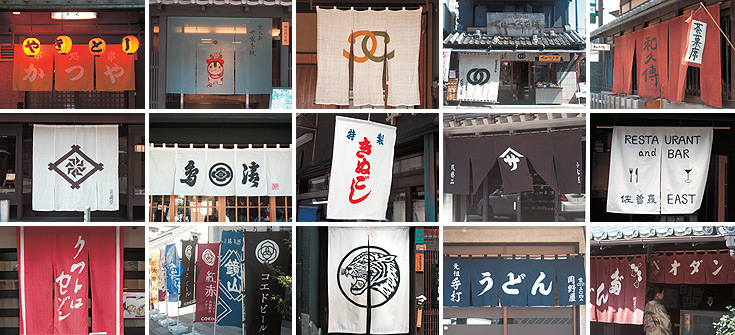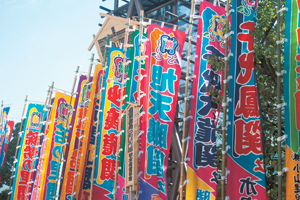niponica is a web magazine that introduces modern Japan to people all over the world.
2013 No.11
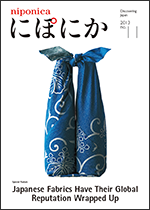
To read the e-book you need to have JavaScript enabled in your browser and a free Flash Player plug-in from Adobe Systems Inc. installed.
Japanese Fabrics Have Their Global Reputation Wrapped Up

Cloth Signs Add Color to Urban Landscapes
Noren curtains hang above shop doors, advertising the business inside. They are generally made of cotton or hemp, and their message is presented in resist-dyed characters, patterns or illustrations. Nobori banners have been used since ancient times, traditionally for festivals, at one time to identify battle arrays, and today to proclaim the names of sumo wrestlers and traditional play actors, and to publicize sales campaigns. Japan's towns and cities have lots of signs like these—all fun to look at, and all made of cloth.
Photos by Takahashi Hitomi
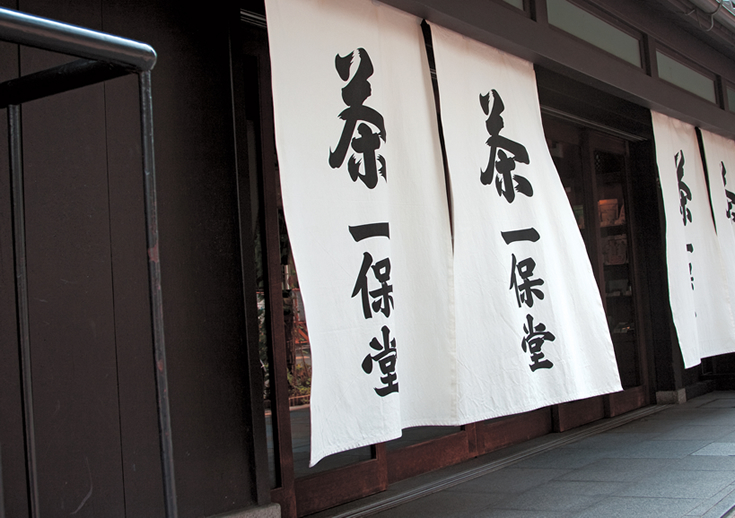
The single kanji character at the top, cha (tea), is written in bold brushstroke. The other three characters give the name of this tea leaf shop. Hanging under the eave, this noren suggests you will be greeted with formality and courtesy inside an old, well-established shop. (Collaboration: Main store of Ippodo Tea Co., Ltd. in Kyoto)
Noren curtains and nobori banners add zest to Japan's urban landscapes. Noren characters, patterns and illustrations give you an idea of the type of business being advertised, and are an important part of an enterprise's public persona.
Nobori banners flap in the breeze in front of the Ryogoku Kokugikan Sumo Stadium in Tokyo, colorfully trumpeting the names of sumo wrestlers. (Photo taken from behind.)
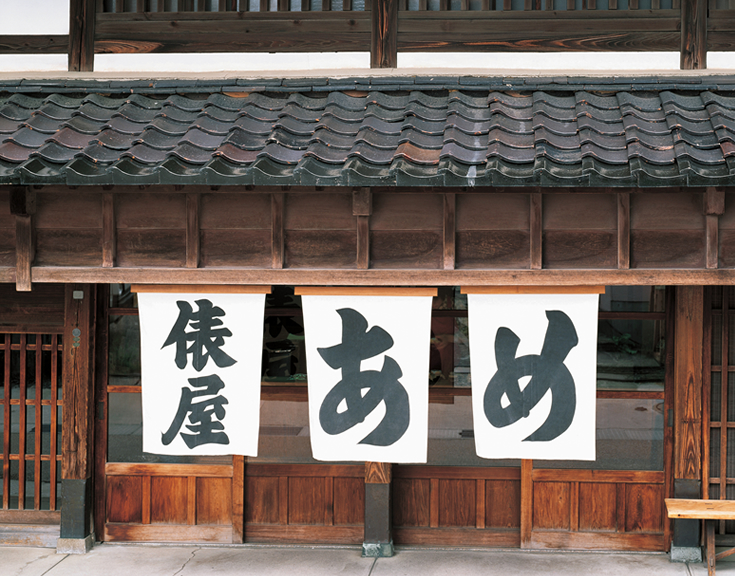
Noren in front of a candy shop in the ancient city of Kanazawa (Hokuriku region). They catch the eye with their bold lettering. (Photo courtesy of Aflo)



